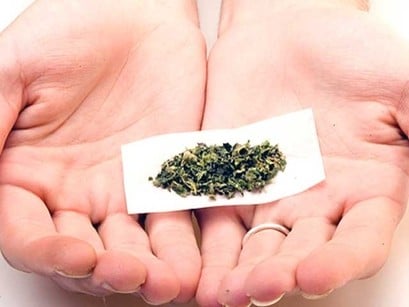Exercise is essential to a healthy lifestyle, but new research led by the University of Sydney shows that for cannabis users, it could also lead to positive drug tests.
Tetrahydrocannabinol (THC), the main intoxicating ingredient in cannabis, has a strong affinity for fat tissue. Most of the THC consumed when cannabis is smoked ends up being rapidly transferred from the bloodstream into fat cells, where it accumulates and can lie dormant for weeks or even months.
But what happens when you burn the fat that contains this THC?
The study by researchers from the University of Sydney and University of NSW, published in the most recent issue of Drug and Alcohol Dependence, asked regular cannabis users to exercise at a level that would cause fat to be metabolised – a reasonably tough 35-minute workout on a stationary exercise bike. The cannabis users had all abstained from smoking overnight to ensure low blood levels of THC prior to the exercise.
After the exercise, the researchers found a substantial increase in blood THC in the cannabis users, which in some cases was enough to make the difference between a negative and positive drug test. The rise in blood THC was accompanied by a jump in free fatty acids in the blood, a tell-tale sign that fat was being used as a fuel during the workout.
In an interesting twist, researchers found that the higher the person’s body mass index (BMI), the greater their increase in blood THC levels with exercise. According to the researchers, greater body fat usually accompanies a higher BMI, resulting in a larger reservoir of stored THC that can be released during exercise.
“These results have potentially huge medico-legal implications,” says Professor Iain McGregor, from the University of Sydney’s School of Psychology, who led the research.
“Someone subjected to workplace or roadside drug testing after a visit to the gym could end up testing positive despite an absence of recent cannabis use.
In addition, it may not just be exercise that produces this effect. Other things that increase use of body fat, for example dieting, or physical or psychological stress, might produce a similar or even greater outcome.
The study also looked at the effects of a 12-hour fast on blood THC levels in some users, although this manipulation failed to increase THC in the same way as exercise. The researchers noted that more than 12 hours of fasting may be required to kick fat use into the high gear required to liberate THC.
Future studies are planned to examine whether the raised THC caused by exercise is enough to impair driving ability and memory in regular users.


